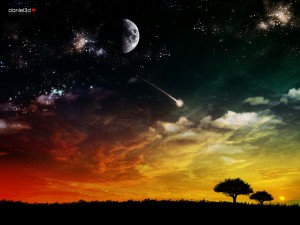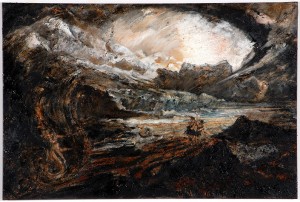The Space Between
The bullets in our firefight
Is where I’ll be hiding, waiting for you
[…]
The Space Between
Our wicked lies
Is where we hope to keep safe from pain
[…]
The Space Between
What’s wrong and right
Is where you’ll find me hiding, waiting for you
The Space Between
Your heart and mine
Is the space we’ll fill with time
— “The Space Between”, Dave Matthews Band

Words and Meaning
“Words have meaning.”
I’ve lost count of how many times I’ve heard that statement from certain devotional polytheists in online arguments over the last couple of years. The statement is most often intended to express the belief that I have used a word in a manner the speaker deems incorrect (and even offensive). “Polytheistic” is only the latest example. Before that it was “gods”. And before that it was “Pagan”. My perceived misuse of these words has been characterized as everything from mere sophistry to an attack on others’ religious identities to an attack on our very ability to communicate.
Recently though, I realized that the sentence above (“Words have meaning.”) was familiar for another reason. It is familiar because I’ve said it myself before. Long before I was Pagan, I said those very words to my wife when I was leaving the Mormon church. The word in question at the time was “truth”. I was hung up on the way that Mormons use the word “true”. On the first Sunday every month, Mormons have a testimony meeting where members volunteer to come to the pulpit and deliver a short, spontaneous, “This I believe …” type statement of faith. Almost all the testimonies offered will include some form of the statement, “I know the [Mormon] Church is true.” Obviously, since I was leaving the LDS Church, I did not think the Church was “true”. When we discussed it, my wife took the position though that the word “true” could be understood in a relativistic sense, as in “I know the [Mormon] Church is true for me.” My response? “Words have meaning.”
So there is a certain cosmic justice at work in the fact that I am hearing these same words being used in response to my own statements of faith today.
But, over the years since I made that statement to my wife, I have slowly come to embrace a different attitude toward questions of truth, meaning, and language. I am working on becoming more comfortable with a greater degree of ambiguity in these matters.
Categorizing: Putting experiences in word boxes
I love categorizing things (as anyone knows who had read this blog). My natural reaction to any new experience is to try to fit it in a box, a word box. It is the way I structure my experience and make sense of my world. It is how I make a cosmos out of chaos. Not everyone needs categories to the same degree as I do, but I think everyone uses them to one degree or another. I still love categorizing. But more and more I am appreciating how real life bleeds across the boundaries of my categories. Take for instance my categorization of Pagans into the four “centers” of Earth, Self, Deity, Community. (I started out with three and later added a fourth.) Some Pagans might fit into just one of these categories, but many (maybe most) Pagans fall into two or more categories. But even if no one fit into just one category, I think these categories would still be useful for making sense of our differences and similarities. These categories still have meaning, not as solid containers but as overlapping penumbras under the Pagan umbrellas.
Today, I am less and less inclined to try to force my experiences into any single category. More and more I am embracing the possibility of both/and instead of either/or. Words do have meaning. Or more accurately, they do have meanings (plural). And it’s a good thing, because there are not enough words in the English language (or ancient Greek or any other language) to contain human experience. And nowhere is this more true than in the area of religious experience.
Am I a theist or an atheist? For some devotional polytheists, those seem to be the only two options. And to them, I clearly fall into the latter group. But neither really describes me. Is pan-theism theistic or a-atheistic? And what about pan-en-thism? Do I believe the gods are real? Yes and no. Is Jungian polytheism a religion or a psychology? Both/and. Are the gods in our heads or “out there” in the world? Both/and. Are the gods one or many? Both/and.

A Space Between
I started this blog as an effort to carve out a space where I could explore these ambiguities. A space where I could exist between my twin desires for the messiness of incarnation and the purity of transcendence. A space between a reductive materialism and an ungrounded supernaturalism A space between the dangers of the psychologization of my religious experience on the one hand and the reification of that religious experience on the other. Over time, many of you have joined me in this exploration. And my journey has been greatly enriched by your company and your wisdom. You have reminded me time and again of the porousness and fluidity of my categories.
And every time you do, I have to admit, I feel a certain measure of fear. Fear of letting go of the rigidity of my categories. Fear of considering unfamiliar categories for my experiences. Fear of opening up to experiences that I do not yet have categories for. Why fear? Because those categories are the boundaries that keeps chaos at bay. To a certain type of mind, such as my own, these arguments over the meaning of words can feel like life and death. And that is why debates over the etymology of words can turn into a struggle for existential survival. I felt this acutely when I was leaving the Mormon church. At that time, I very much needed the word “true” to mean something, one thing and only one thing. I believed the Mormon church was “false”, and for “false” to mean something, for my departure from the Mormon church to mean something, “true” had to mean something too. To let go of that definition felt like letting go of who I was. Today, I have grown more comfortable with the notion that people mean different things when they say “I know this church is true.” Today, I don’t feel quite as much angst when I hear Mormons use that phrase.
But still I understand the tenacity with which some devotional polytheists hold to certain definitions. I feel it too. I felt it acutely when I first realized that there were people calling themselves “Pagan” who did not fit my narrow image of what Paganism was. I still feel it sometimes. I feel it when others describe experiences I don’t have a category for. I feel it when you, my readers, call me to move out of my categories and return to my experience. I fight against it almost every time I blog. Sometimes I am more successful than others. Sometimes (probably more often than I’d like to admit) I let the need for clear bright lines overwhelm me. But sometimes I manage to stay open to the ambiguity, to the mystery, of human experience. Sometimes my curiosity exceeds my fear. Sometimes I manage to make the words serve me, rather than making me their servant.

Words do have meanings. And those meanings are important. Without them, we could not communicate with one another. Without them, we would drown in a flood of chaos. But there are other ways to die than drowning. We can die of thirst a “desert of the real” where a slavish worship of words has cut us off from the very experiences which give life to those words. “Where there is no water nothing lives; where there is too much of it everything drowns. It is the task of consciousness to select the right place where you are not too near and not too far from water; but water is indispensable.” (Jung) Life happens in this space in-between, in the space between the words.












